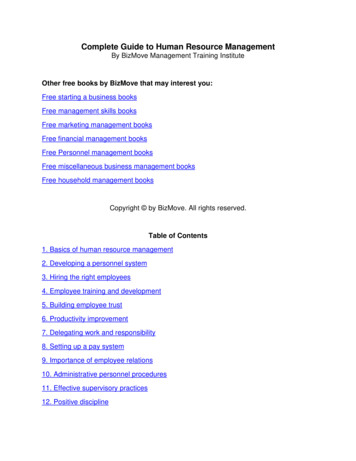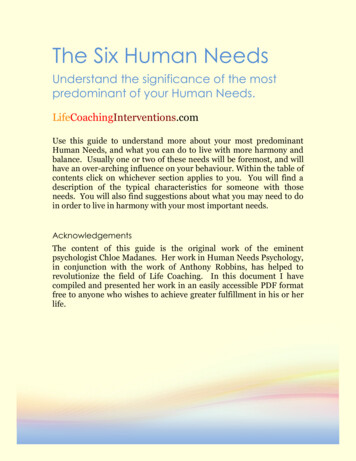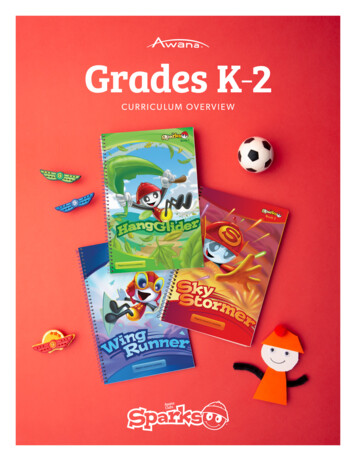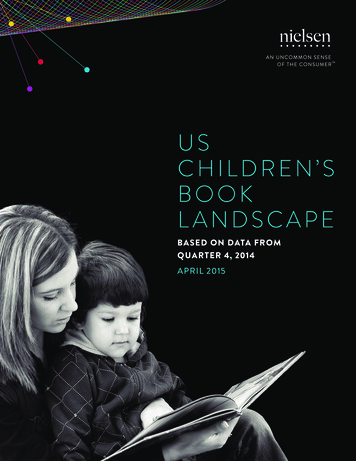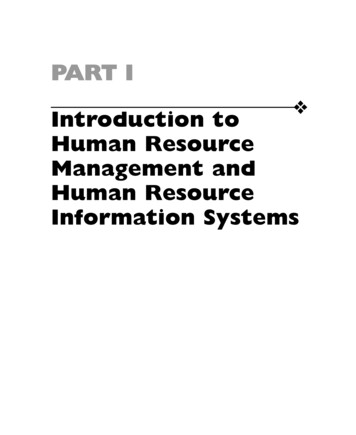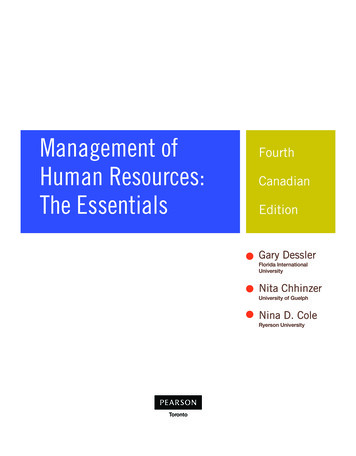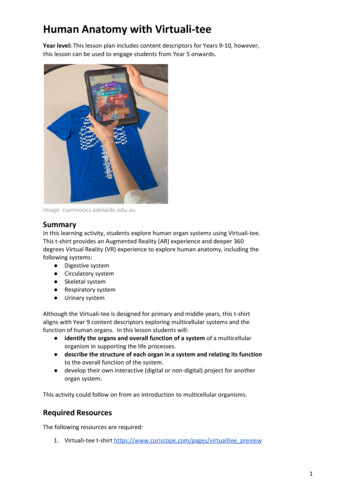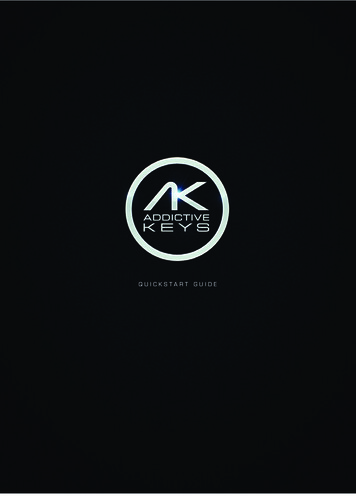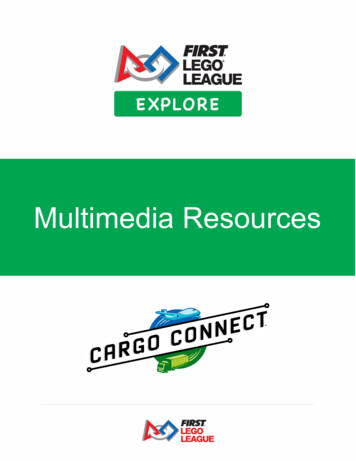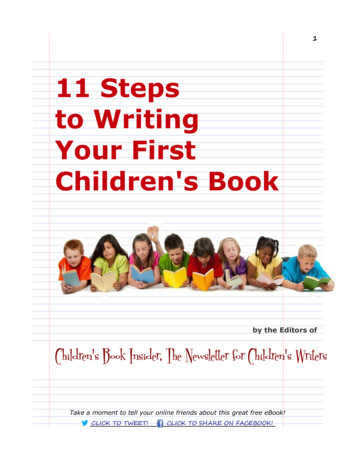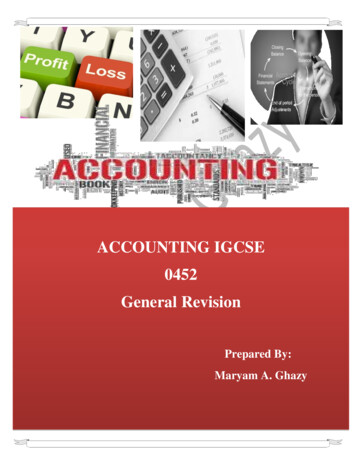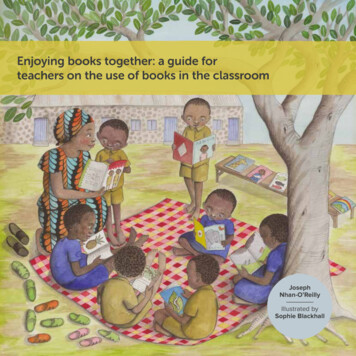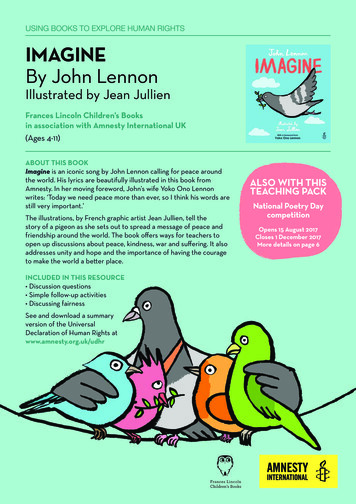
Transcription
USING BOOKS TO EXPLORE HUMAN RIGHTSIMAGINEBy John LennonIllustrated by Jean JullienFrances Lincoln Children’s Booksin association with Amnesty International UK(Ages 4-11)ABOUT THIS BOOKImagine is an iconic song by John Lennon calling for peace aroundthe world. His lyrics are beautifully illustrated in this book fromAmnesty. In her moving foreword, John’s wife Yoko Ono Lennonwrites: ‘Today we need peace more than ever, so I think his words arestill very important.’ALSO WITH THISTEACHING PACKThe illustrations, by French graphic artist Jean Jullien, tell thestory of a pigeon as she sets out to spread a message of peace andfriendship around the world. The book offers ways for teachers toopen up discussions about peace, kindness, war and suffering. It alsoaddresses unity and hope and the importance of having the courageto make the world a better place.Opens 15 August 2017Closes 1 December 2017More details on page 6INCLUDED IN THIS RESOURCE Discussion questions Simple follow-up activities Discussing fairnessSee and download a summaryversion of the UniversalDeclaration of Human Rights atwww.amnesty.org.uk/udhr1 IMAGINE by John LennonNational Poetry Daycompetition
DISCUSSION QUESTIONS‘Imagine there’s no heaven’ What might the man on the train be feeling? What would you say to him? Why are all the colours grey? Have you seen the badge on the pigeon’s bag before? What does it mean? What is the pigeon carrying in her beak? Where does it come from? Write a list of the items the pigeon’s bag might contain — or draw them.‘No hell below us. Above us only sky’ What is the pigeon feeling in this picture? Where do you think the boat is going? Why has the artist changed the colours he is using?2 IMAGINE by John Lennon
‘Imagine there’s no countries. It isn’t hard to do’ What are the seagulls looking at in each of the pictures? Why are the seagulls fighting? What makes them stop? How do you think they feel in the last image? What do you think the seagulls do next? Draw a new page showing this.‘I hope some day you will join us’ How do you feel when you are alone? And with other people? How do you think the pigeon feels when the other birds join her on the wire?3 IMAGINE by John Lennon
‘Imagine no possessions. I wonder if you can’ What are the hummingbirds doing? How are they behaving differently? What do you think they have learned? What possessions could you imagine giving up?‘I hope some day you’ll join us and the world will live as one’ What does John Lennon mean when he says he’d like the world to live as one? How can one person help to make the world kinder, safer and more peaceful? Why is it important that people work together? What do you think would make the world a much better place?4 IMAGINE by John Lennon
FOLLOW-UP ACTIVITIES Make a collage, draw a picture or write a story with the title ‘Peace’. Create aclassroom display. Imagine yourself as a bird. Draw what you look like and add yourself to thetelephone wire. John Lennon believed the world would be more peaceful if there were nocountries, no religion and no possessions. Draw your peaceful place, or talkabout the things that would make the world peaceful. Decorate a pigeon template with a message for a better world. Think about words:peace, freedom, sharing, unity, safety and fairness. Hang up on a wire strung acrossthe classroom. (To make your own bunting, see Bunting Activity Sheets.)For more information visit: www.imaginepeacebook.comDISCUSSING FAIRNESS Yoko Ono Lennon says it is important that we treat everyone fairly, not just ourfamily and friends. Do you agree? Talk about some examples of fairness, eg playing by the rules, treating all peoplein the same way, not picking on people because they are different. Think of a time you were treated unfairly. How did you feel? What couldsomeone have done to help? Could you have done anything differently? Talk about other words associated with fairness: sharing, kindness, tolerance,equality.To download more free educational activities, including exploring humanrights in stories, go to www.amnesty.co.uk/education5 IMAGINE by John LennonImages Jean Jullien 2017Here’s what your class can do
IMAGINE A POEMCOMPETITIONPoetry writing competitionOpen to 7-11 year oldsFor poems capturing different sights,sounds and symbols of freedomThe National Poetry Day poetry competition isnow open for 7-11 year olds.We are inviting children to write a poem inspired by Freedom,the theme of this year’s National Poetry Day (28 September)and John Lennon’s immortal song Imagine, which is beingreleased as a beautiful picture book, illustrated by Jean Jullien.There are special prizes to be won including a visit from aNational Poetry Day Ambassador. It’s also a fun and engagingactivity for teachers and families.The inspirationSo how do you imagine freedom? Do you think of love,peace, friendship and understanding? Or flags and banners, asea-breeze, a bird soaring or a ball flying into the air? Maybefreedom is an absence: freedom from hate, war, hunger orpoverty. Or freedom is a positive: freedom to speak, have ahome, be equal and to choose.The Universal Declaration of Human Rights says we all have30 freedoms, no matter who we are or where we live. One ofthese is the freedom to express ourselves.Imagine by John Lennon, illustratedby Jean Jullien with a foreword byYoko Ono Lennon, is published on21 September, the International Dayof Peace (Frances Lincoln Children’sBooks in support of AmnestyInternational).How to enter Use the word ‘Imagine’ as your title. You could take the lyrics of Imagine as your starting pointand begin each line with the phrase ‘Imagine there’s ’ Think about different types of poetry such as limericks, rap,haikus, free verse. Or you could try an acrostic poem, inwhich the first letters in each line spell out the topic, such asImagine or Freedom. See the National Poetry Day toolkit for more inspiration. Here is a useful, simplified version of the Universal6 IMAGINE by John LennonOpening date15 August 2017Closing date1 December 2017Declaration of Human Rights which sets out fundamentalfreedoms we are all entitled to. Write your entry on no more than one sheet of A4 and putyour name on the back. N ote to adult: Please complete the Entry Form (availableto download on page 7) and send in with entries. If you arenot entering through a school, please put your name andcontact details on the back of the entry too.The prizesThere are two age categories: 7-9 year olds (Years 2, 3 and 4)and 10-11 year olds (Years 5 and 6).One overall winner will receive a visit from a National PoetryDay Ambassador to their school in January/February 2018,and a copy of Imagine signed by the illustrator Jean Jullien.Two age-group winners will see their poem illustrated by aNational Poetry Day artist Ambassador and receive a copyof Imagine signed by the illustrator Jean Jullien. Both poemswill be published on the National Poetry Day website.Runners up will have their poems published on the NationalPoetry Day website. One runner up will also receive aselection of books for their class/school.Please note: Shortlisted entries will be judged by NationalPoetry Day Ambassadors. Winners and runners-up will benotified before the end of the Autumn term. No entries canbe returned.Competition addressFill in the Entry Form (page 7). Entries should be sent by5pm on Friday 1 December 2017 to:Email childrensmarketinguk@quarto.com(title: NPD Imagine competition)Or post toNPD Imagine CompetitionFrances Lincoln Children’s Books6 Blundell StreetLondon N7 9BH
ENTRY FORMCOMPETITIONNational Poetry DayImagine a Poem competitionOpening date15 August 2017Closing date1 December 2017This form must be completed by a teacher or parent/guardian.Include it with entries. One entry per child. All competition entriesmust be received by 5pm on Friday 1 December 2017.Age group (circle category)7-9 (Years 2, 3, 4)10-11 (Years 5 and 6)If you are a schoolTeacher’s nameJob titleSchool nameEmail addressTelephone numberNumber of entries submitted (one per child)Date//Date//If you are an individualChild’s nameName of parent/guardianParent/guardian email addressParent/guardian telephone numberParent signatureSend this covering entry form with poem/s to:NPD Imagine CompetitionFrances Lincoln Children’s Books6 Blundell StreetLondon N7 9BHOr you can email childrensmarketinguk@quarto.com (title: Imagine competition)Winners and runners-up will be notified before the end of the Autumn term.UK residents only. No purchase necessary. To the best of the teacher’s or parent/guardian’s knowledge, all entries are theoriginal work of each individual entrant and have not been copied from another work. Entries received after the closingdate 1 December 2017 cannot be accepted. Entries cannot be returned. Frances Lincoln Children’s Books cannot takeresponsibility for entries lost or damaged in the post. Please make sure you keep a record of your entry or send in a copy ofyour poem. Winners and runners-up will be notified before the end of the Autumn term 2017. The judges’ decision is final andno correspondence will be entered in to concerning this decision. There is no cash alternative to the prizes offered. FrancesLincoln Children’s Books reserves the right to use the winning poems and resulting prizes on its social media channels and topublish some or all of the poems on the National Poetry Day website, Amnesty International materials, and in newspapers andother media together with the entrant’s details provided on the official entry form (including their name and age). By enteringthis competition, you agree to these terms and verify that the child/children entering is/are within the age groups chosen.7 IMAGINE by John Lennon
Frances Lincoln Children's Books in association with Amnesty International UK (Ages 4-11) ABOUT THIS BOOK . Imagine. is an iconic song by John Lennon calling for peace around . National Poetry Day . competition . Opens 15 August 2017. Closes 1 December 2017 More details on page 6. 2 . IMAGINE by John Lennon DISCUSSION QUESTIONS
